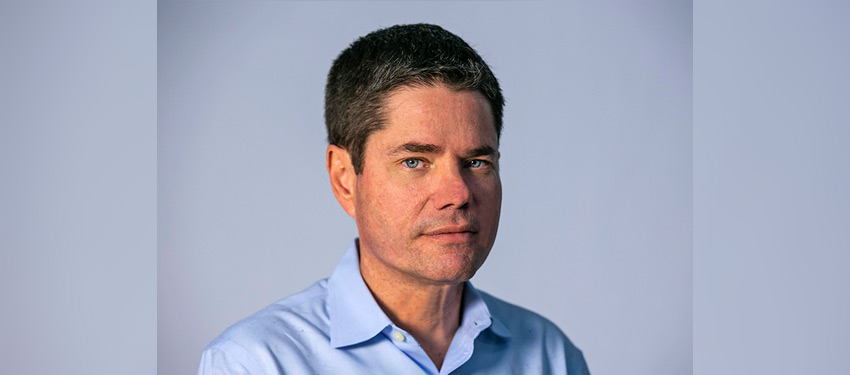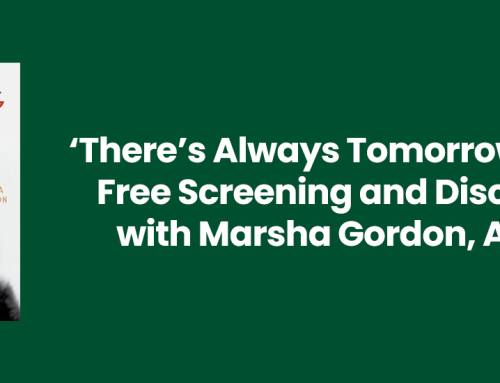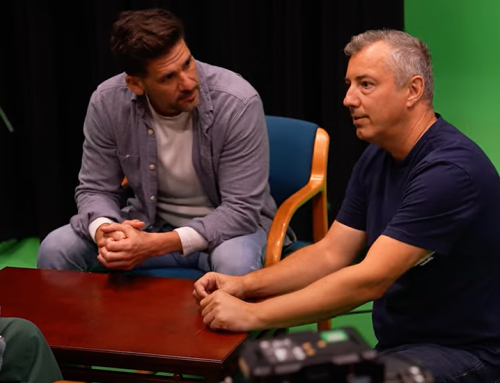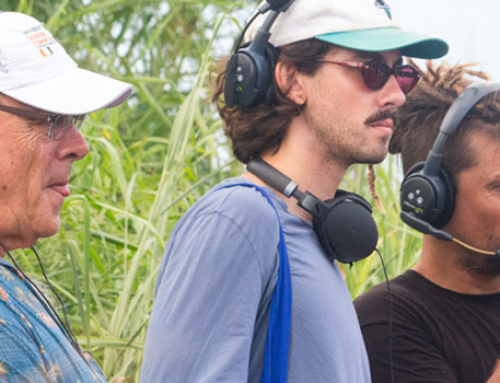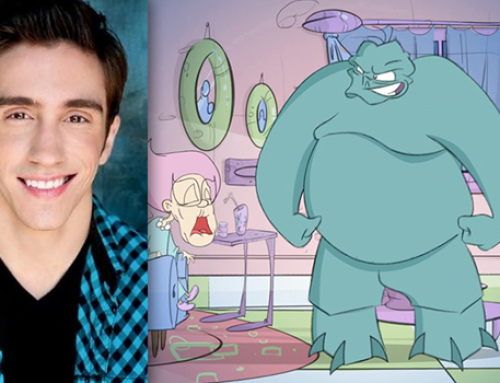This semester, Rene Rodriguez, who served as the Miami Herald’s film critic for over 20 years, is teaching a class in the School of Communication called The Most Influential Decade: How the Movies of the 1980s Continue to Shape Hollywood today. Rene spoke with us about the inspiration for his course and what he hopes to convey to his students about this pivotal decade.
Isabella: What was the inspiration for this 1980s cinema class?
Rene: So, I teach an Aspects of Contemporary Cinema course in the spring semester, which is about new movies; so we look at new movies from around the world and we sort of analyze what the themes of the movies are. I was meeting with Christina Lane [department chair for Cinema and Interactive Media] in April and she told me, ‘Well, if you want to teach that class in the fall semester, you can, unless you have something else in mind. And I told her I had been long contemplating writing a book, because I grew up in the 1980s, and that was the era where I just consumed every movie possible.
I: Why the ’80s?
R: The ’80s are often maligned with being one of the worst decades in Hollywood history for good films, because it was the decade where Spielberg and Lucas and all the Blockbusters took over, and a lot of people like to poo-poo on the ’80s and say that there were no good movies made. I wanted to write a book saying regardless of what you think of the quality of the movies, the ’80s are probably the most influential decade, because everything that’s happening now in terms of the kind of movies Hollywood chooses to make and what has happened to long-form narratives on Netflix, HBO, etc., can be traced back to the 1980s.
So, I told her I’m thinking about writing this book, but I’m not sure if the premise is sound. And she said, ‘Well, why don’t you try it by teaching a class on it, and that way you’ll get really good feedback from the students, and you can also think the premise through.’ So that was the idea of the course, and that’s why the course is called, The Most Influential Decade: How the Movies of the 1980s Continue to Shape Hollywood today. I’m using the class as a lab in a way, and I’m learning with the students in a way.
I: What types of students are taking the class?
R: That was one of the biggest surprises. This is the first class I’ve taught that is open to freshmen and sophomores—the other courses were just for juniors and seniors. And I’ve got the gamut— first-year students, sophomores, juniors, seniors— and some of them are film majors, some of them are psychology majors, one is majoring in advertising and PR, so it’s really just a wide range of students that are taking the class. What struck me as most curious is that they haven’t seen a lot of these movies. Like I would think that the people who signed up for this course would already have a built-in curiosity for ’80s movies, but they know very little about 1980s movies other than the big obvious ones which we’re not going to be talking about in class. For example, I showed them Terms of Endearment, and none of them have seen it. And I was like, ‘How is this possible?’ But you forget that these movies are 40 years old.
I: What’s the curriculum like?
R: It’s kind of tricky because you’re trying to fit a whole decade of film into one semester, so I wrestled a lot with how I was going to structure it, and at one point, I was going to do it thematically, like okay here’s what happened with comedies, here’s what happened with dramas. But what I decided is that I’m working my way through it chronologically, so the first movie we watched was Fast Times at Ridgemont High, which was released in 1981. Then we watched Terms of Endearment at the Cosford, which was released in 1983. And we’re also watching Rumble Fish, which was also released in 1983. But, I decided for the screenings in class, I’m doing them chronologically, because I want them to be able to see how movies changed in terms of what they were willing to deal with and what they learned to deal with.
I: What do you mean by that?
R: So, for example, in Fast Times at Ridgemont High, one of the characters loses her virginity, she gets pregnant and the boyfriend just stands her up. She wants to have an abortion and the brother, who is played by Judge Reinhold, takes her to the abortion clinic, brings her home and tells her, ‘Don’t worry I’m not gonna tell mom and dad.’ There were no adults in Fast Times at Ridgemont High, except for the teacher. That scene would never, ever, ever be in a movie today about adolescence. For all the obvious reasons. When I grew up, movies were made for grown-ups, so when I went to the movies, I would have to latch on to their level. In the ’80s, that sort of changed. Fast Times at Ridgemont High was rated R, it contains drug use, it contains graphic sex, nudity. I showed them a scene from Porky’s, and they were stunned. They couldn’t believe how graphic it was even though it was just a dumb comedy. By the end of the decade you see that softening a lot. The PG-13 rating comes into play and movies start pulling the punches more because they want to start attracting a younger audience. So, the idea was to do things chronologically, so they could see how things changed.
I: What do you do outside of teaching and how does it tie into your class?
R: This is actually a really funny question, because in the previous fliers for my Aspects of Contemporary Cinema class, it would say, ‘Rene Rodriguez was the Miami Herald’s movie critic for 25 years.’ For some reason, on the fliers for this class, it didn’t say that. It just said, ‘Professor Rene Rodriguez.’ And the first day of class, I forgot to tell them about my background, so last week we were going over the movies that Steven Spielberg directed in the ’80s, and I made a passing comment that I was putting Poltergeist on this list, because when I interviewed Spielberg he told me off the record that he was on the set every day and the only reason he couldn’t get director’s credit was because he was directing E.T. at the same time. And one of the students raised their hand and said, ‘Wait you interviewed Steven Spielberg?’ And I was like, ‘Yeah, I interviewed him a bunch of times.’ And you could see it spreading throughout the class, like, ‘Who are you?’ And I realized then that I had never properly introduced myself. So, I paused the class and I told them about what I had been doing and why, and they were really funny because at first they were asking me like ‘Oh, who’s the nicest person you’ve ever interviewed, who’s the meanest person you’ve ever interviewed,’ but then after class, students came up and said, ‘We just thought you were this really intense guy who knew a lot about movies. This explains everything.’ So it kind of clicked into place for them, like this is why I know so much about movies. My lectures tend to be very spontaneous and kind of conversational. So they probably thought, like, who is this crazy person who knows so much about movies? But now they know.
I: Do you think you’ll teach it again?
R: Well, ask me that at the end of the semester. As of right now, it’s great, the students are really responsive, but it’s still early in the semester. They seem to be enjoying the course, but the pressure is on me to really bring it home in terms of getting them to see how the decade really evolved. I’m hopeful because if I can teach it again, I will have learned a lot from this semester.
I: Is there anything else you’d like to add?
R: It’s kind of bittersweet to me because the very first movie I ever reviewed was an ’80s movie for my high school newspaper. And the second movie that I ever reviewed was a movie called The Last Dragon, which came out in 1985, and I did that for the Hurricane. I went to UM and I majored in filmmaking and minored in journalism, but this is 1984 you’re talking about, so filmmaking wasn’t really a viable industry, so I gravitated more toward journalism.
